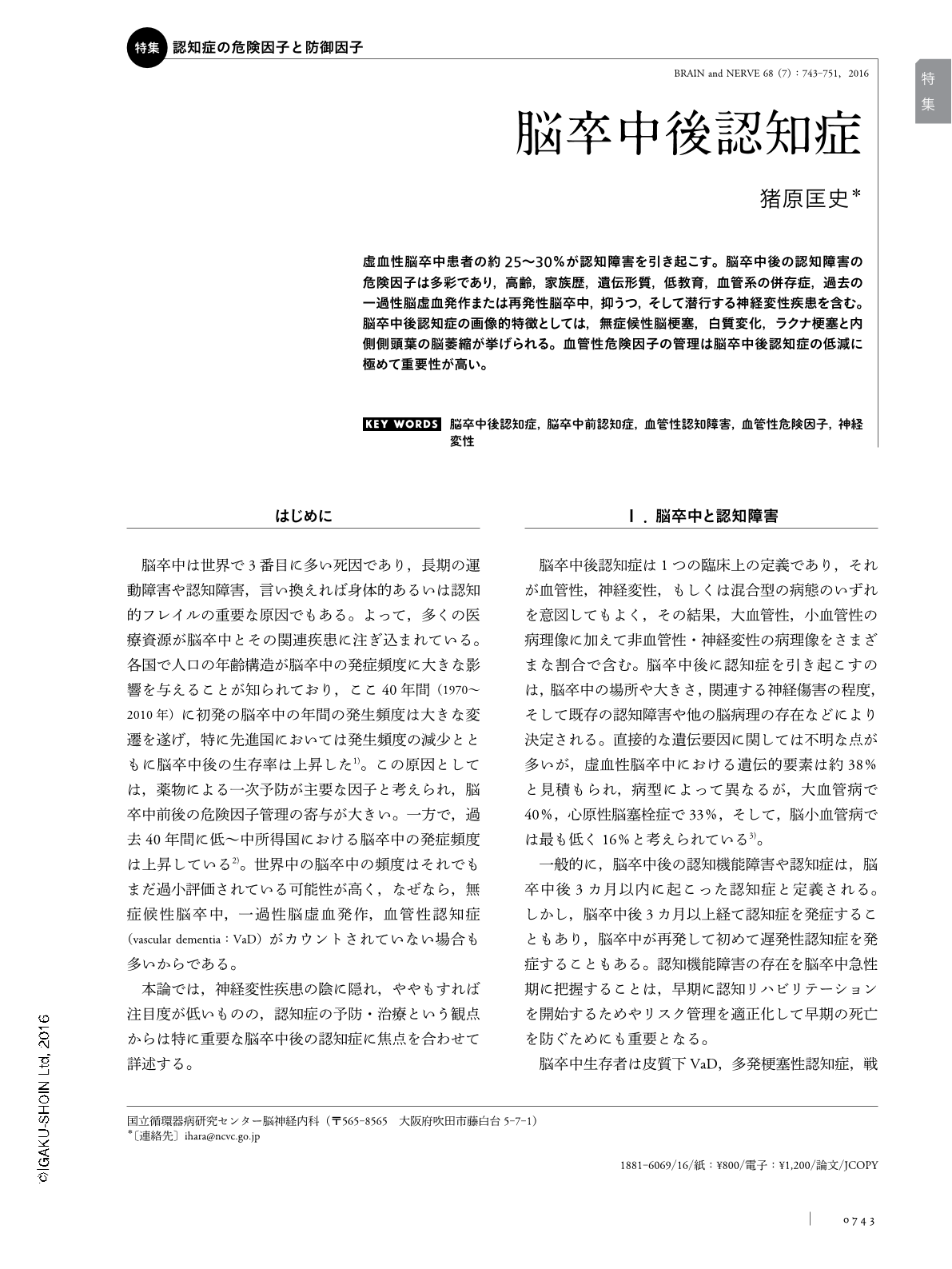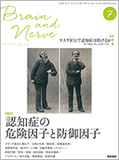Japanese
English
- 有料閲覧
- Abstract 文献概要
- 1ページ目 Look Inside
- 参考文献 Reference
虚血性脳卒中患者の約25〜30%が認知障害を引き起こす。脳卒中後の認知障害の危険因子は多彩であり,高齢,家族歴,遺伝形質,低教育,血管系の併存症,過去の一過性脳虚血発作または再発性脳卒中,抑うつ,そして潜行する神経変性疾患を含む。脳卒中後認知症の画像的特徴としては,無症候性脳梗塞,白質変化,ラクナ梗塞と内側側頭葉の脳萎縮が挙げられる。血管性危険因子の管理は脳卒中後認知症の低減に極めて重要性が高い。
Abstract
Post-stroke dementia (PSD) is a clinical entity that encompasses all types of dementia following an index stroke. Current evidence suggests that 25-30% of ischemic stroke survivors develop immediate or delayed vascular cognitive impairment or vascular dementia. The type of stroke can be either ischemic, hemorrhagic or hypoperfusive. There are multiple risk factors for PSD including older age, family history, genetic variants, low educational status, vascular comorbidities, prior transient ischemic attack or recurrent stroke and depressive illness. Pre-stroke dementia refers to the occurrence of cognitive impairment before the index stroke, which may be caused by a vascular burden as well as insidious neurodegenerative changes. Neuroimaging determinants of dementia after stroke include silent brain infarcts, white matter changes, lacunar infarcts and medial temporal lobe atrophy. Published clinical trials have not been promising and there is little information on whether PSD can be prevented using pharmacological agents. Control of vascular disease risk and prevention of recurrent strokes are key to reducing the burden of cognitive decline and post-stroke dementia. Modern imaging and analysis techniques will help to elucidate the mechanism of PSD and establish better treatment.

Copyright © 2016, Igaku-Shoin Ltd. All rights reserved.


